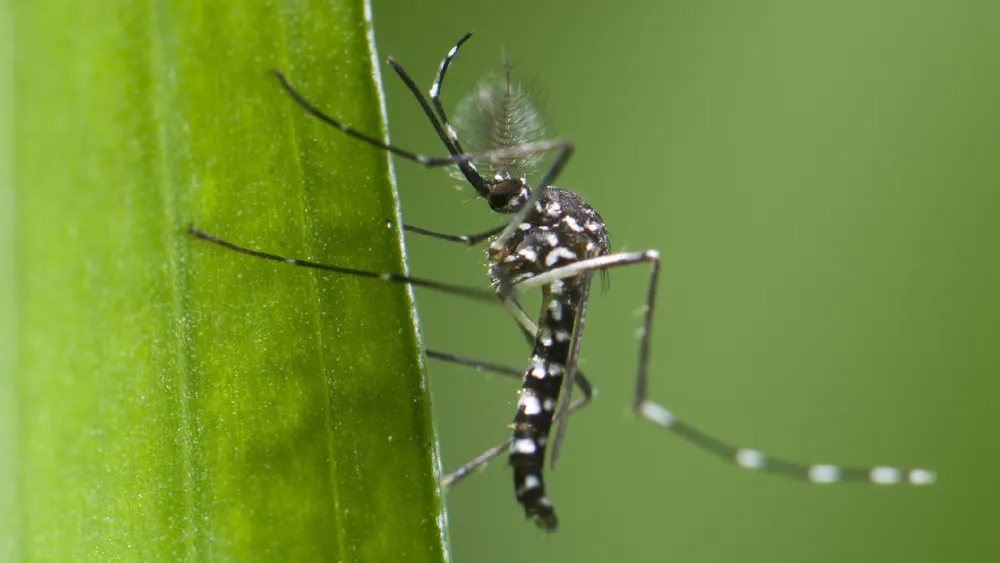Chikungunya Fever Explained Tips for Staying Safe

Foshan City in Guangdong Province, China, is grappling with a significant public health challenge as it reports over 4,000 confirmed cases of chikungunya fever as of July 24. This current outbreak is notable not only for its scale but also because it marks the largest surge of chikungunya cases the region has witnessed to date.
The increase in chikungunya cases raises critical questions about the outbreak's severity. Liu Qiyong, the chief expert in Vector-Borne Disease Control at the Chinese Center for Disease Control and Prevention, has been at the forefront of prevention efforts in Foshan.
According to Liu, several factors have contributed to the alarming rise in chikungunya cases, with intensified global transmission being the primary driver. The World Health Organization reports that there are currently active chikungunya outbreaks across 119 countries and territories, which calls for enhanced preparedness globally.
Liu explains that the virus's global spread has led to an increase in imported cases in China. The presence of local transmission vectors, particularly Aedes mosquitoes, has fueled ongoing local transmission cycles, resulting in concentrated outbreaks in Foshan.
The year's climatic conditions and the unique characteristics of the viral strain have further exacerbated the situation, making the chikungunya outbreak in Foshan considerably more severe than earlier instances.
Chikungunya is transmitted when infected mosquitoes bite humans, allowing the virus to replicate rapidly within the body. Typically, within one to two days, symptoms emerge, which may include a high fever, skin rashes, and severe joint pain. The term 'chikungunya' comes from Tanzania and means 'to bend over,' referring to the stooped posture caused by this joint pain.
Clinical studies indicate that between 20 to 30 percent of those infected develop polyarthralgia, leading to pain in multiple joints. While many recover within weeks, a small percentage may face prolonged symptoms lasting beyond six months, potentially affecting their work capacity and joint mobility.
Mosquito activity is closely linked to temperature, thriving in optimal ranges between 25 and 28 degrees Celsius. However, extreme heat can suppress mosquito populations. Notably, Aedes mosquitoes are daytime feeders, with increased biting activity during early mornings and late afternoons, prompting local authorities to time mosquito control measures accordingly.
Liu emphasizes that regions without current outbreaks should continue with routine preventive strategies instead of panicking. However, areas experiencing confirmed cases need to escalate mosquito control efforts and personal protective measures, focusing on systematic eradication in hotspots.
To mitigate risks of chikungunya and other mosquito-borne illnesses, using effective repellents is crucial. Liu advises ensuring that repellents are registered and adhere to safety standards. Additionally, wearing light-colored, long-sleeved clothing outdoors can further protect against mosquito bites.
With no vaccine or specific treatment available for chikungunya fever, effective mosquito control is vital. Measures include the elimination of adult mosquitoes, draining stagnant water sources, and minimizing situations that allow for bites. Vulnerable groups should seek immediate medical assistance if symptoms develop, especially travelers to regions experiencing outbreaks.
As cases have risen globally, travelers heading to areas impacted by chikungunya—such as Foshan, Southeast Asia, Africa, or South America—should stay informed about local health advisories and take strict mosquito protection precautions. Liu recommends monitoring health post-travel and seeking prompt medical attention for any signs of fever, rash, or joint pain.
Read These Next

Tencent Video Launches King of Glory Animated Series
The new animated series based on "King of Glory" exemplifies the convergence of gaming and media; it highlights trends in content consumption and audience engagement.

OpenAI Launches New AI Agent Capable of Independent Thought
OpenAI launches ChatGPT Agent, an AI tool that autonomously handles complex tasks like finance and shopping, enhancing user interaction.

Battery Breakthrough for eVTOL: A Future Leap
This commentary highlights the collaboration between Zhong Chuang Xin Hang and GAC High-Domain in developing advanced batteries for eVTOL vehicles, and its implications for the future of urban air mobility.
